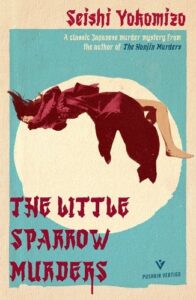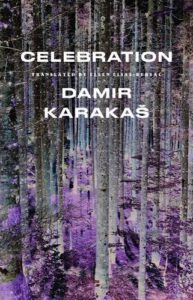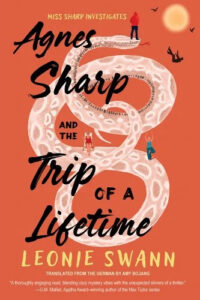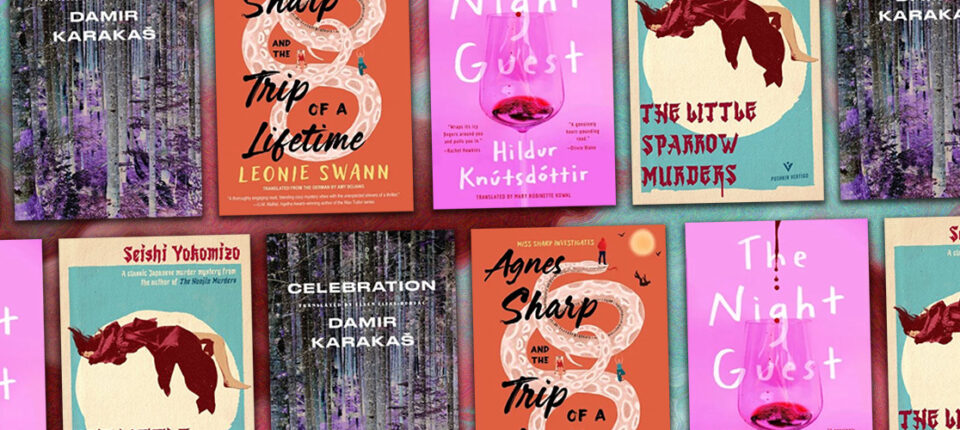After a brief hiatus, the international fiction column is back! Recommending fiction in translation is my favorite part of this job, as both a disruptor of cultural assumptions and a method of finding common ground. This month brings a particularly diverse array of new releases, featuring Icelandic horror, Croatian noir, a Japanese reissue, and a German writer’s take on the English cozy. Thanks, as always, for reading :).

Hildur Knútsdóttir, The Night Guest
Translated by Mary Robinette Kowal
(Tor/Nightfire)
Sleep disorders take center stage in this creepy AF Icelandic horror novel. In The Night Guest, a woman wakes up more tired each day, deeply confused about what’s going on with her body until she buys a step-tracker and finds out she’s been sleep-walking for miles each night. In order to understand her pathology, she must finally accept her past—and while the novel ends somewhat ambiguously, one thing we do come to comprehend is that this lady is truly messed up. Also, those poor cats…

Seishi Yokomizo, The Little Sparrow Murders
Translated by Bryan Karetnyk
(Pushkin Vertigo)
It is a universally acknowledged truth that a fictional detective on holiday must be in want of a localized cold case to solve. Or, at least, that is the promise for the latest reissue from Pushkin Vertigo, The Little Sparrow Murders, by the renowned post-war crime writer Seishi Yokomizo, in which a detective heads to a small Japanese spa town for a month of rest & relaxation. As the world cannot tolerate a detective on holiday, he instead finds himself captivated by a decades-old unsolved murder, linked to a mysterious con artist and a hard-headed, weary femme fatale. A fascinating depiction of 1950s-era Japanese rural life and the petty disputes that can forever fracture a community.

Damir Karakaš, Celebration
Translated by Ellen Elias-Bursac
(Two Lines Press)
This haunting novel of delusions and comeuppances, set in a small Yugoslavian village, takes place at the end of WWII, as a former soldier for the Ustaša (Croatian ultranationalists who collaborated with the Nazis) attempts to evade capture by the winning communists and punishment for his war-time crimes. He waits just outside his house while his wife and sons go about their daily farm work, convinced he can join them and get away scot-free. The novella becomes a timely meditation on the many ways perpetrators can convince themselves of their own essential smallness, and thus their own essential innocence—the kind of thinking that allows someone to see the world as a place where things just happen, where no one could possibly be responsible for making those things happen. Celebration is by a former war reporter who witnessed the dissolution of former Yugoslavia first-hand, and feels reminiscent of the wartime stories of Italo Calvino, both in its brevity and power, as well as the violence-in-nature vibes of Lacombe, Lucien.

Leonie Swann, Agnes Sharp and the Trip of a Lifetime
Translated by Amy Bojang
(Soho Crime)
Leonie Swann may be originally from Germany, but now she lives in the English countryside and (with the help of her capable translator), writes just like an British doyenne. Fans of Agatha Christie-style traditionals should enjoy this skillfully crafted follow-up to The Sunset Years of Agnes Sharp, featuring Swann’s cheerful octogenarians solving a murder in Cornwall.

















